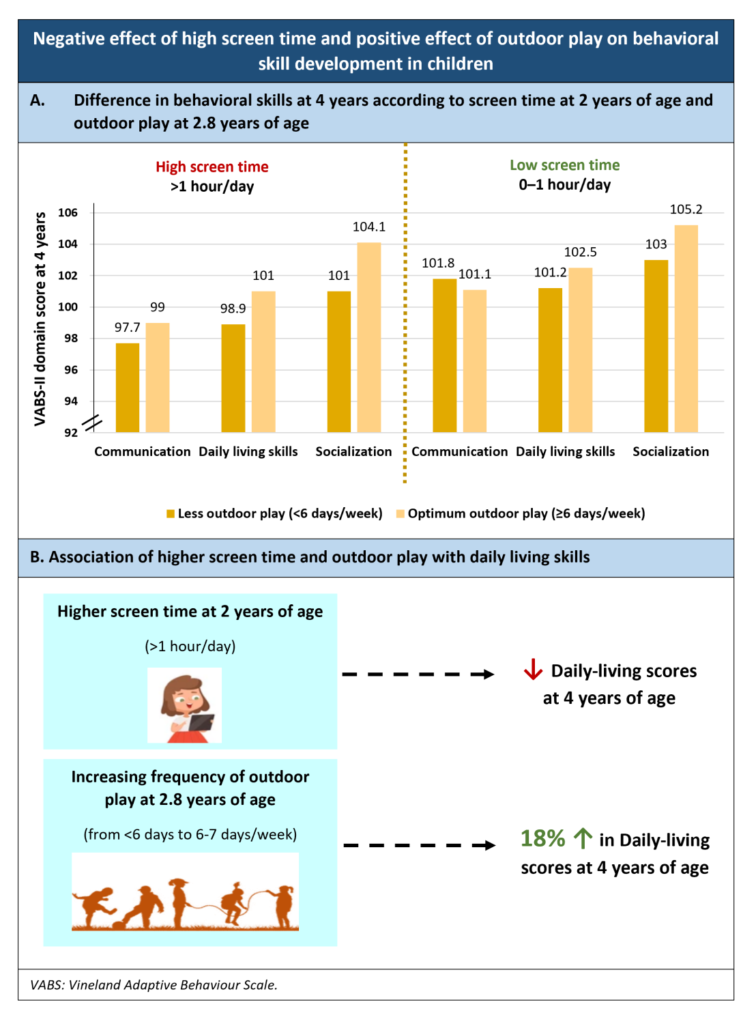
A recent study published in JAMA Pediatrics has answered one of the most important parental dilemmas today, viz., impact of children playing computer games vis-a-vis outdoor games. The study demonstrated a negative impact of screen time on neurodevelopmental outcomes, i.e., development of brain and its function, in young children. Higher screen time (>1 hour/day) at the age of 2 years was associated with poor communication and daily living skills at the age of 4 years. The study stressed on the importance of encouraging children to play outside, which eventually can help in improvement of both, daily-living skills and socialization in children in their later life.
The study enrolled 885 children (age: 18 months to 4 years) to determine the effect of screen time at 2 years of age on the neurodevelopmental outcomes at the age of 4 years, and whether the association can be mitigated by outdoor play at 2.8 years. Data on screen time, outdoor play, and neurodevelopmental outcomes (communication [receptive, expressive, and written language skills], daily-living skills [personal, domestic, and community life skills], and socialization [interpersonal relationships, play, and coping skills]) was collected through parental questionnaires or interviews during observation visits conducted at 1.6, 2, 2.8, and 4 years of age.
The mean screen time per day was 2.6 hours. Excess exposure to screen time (>1 hour/day) at an early age (2 years) led to poor communication as well as suboptimal daily-living skills at the age of 4 years, whereas low exposure to screen time had a positive effect on skill development in children (Graphic A). Screen time was also associated with infrequent outdoor play (<6 days a week) at 2.8 years of age. Encouraging children to play outside resulted in improvement of daily-living skills and socialization later in life (Graphic B).

Clinical implication:
- Parenting attitude, along with exposure to screen time, determine socio-emotional development in children. Educating parents regarding the negative impact of screen time and benefits of encouraging outdoor play can help in improving neurodevelopmental outcomes in children.
- Excessive exposure to screen at an early age may result in delayed communication later in life due to compromised comprehension in conversation while limiting time of screen exposure may help in optimal neurodevelopment, thereby improving language skills in children.
- Outdoor play at an early age also helps in the improvement of socialization skills in children later in life.
(Reference: Sugiyama M, Tsuchiya KJ, Okubo Y, Rahman MS, Uchiyama S, Harada T, Iwabuchi T, Okumura A, Nakayasu C, Amma Y, Suzuki H, Takahashi N, Kinsella-Kammerer B, Nomura Y, Itoh H, Nishimura T. Outdoor play as a mitigating factor in the association between screen time for young children and neurodevelopmental outcomes. JAMA Pediatr. 2023:e225356. Doi: 10.1001/jamapediatrics.2022.5356)
